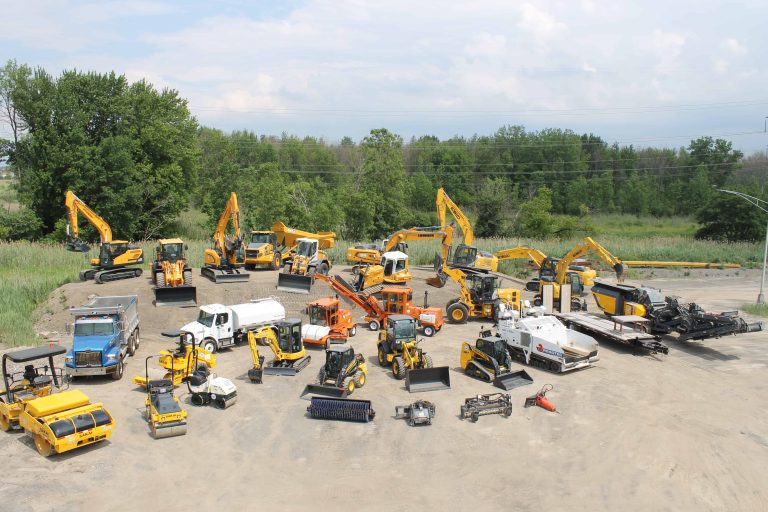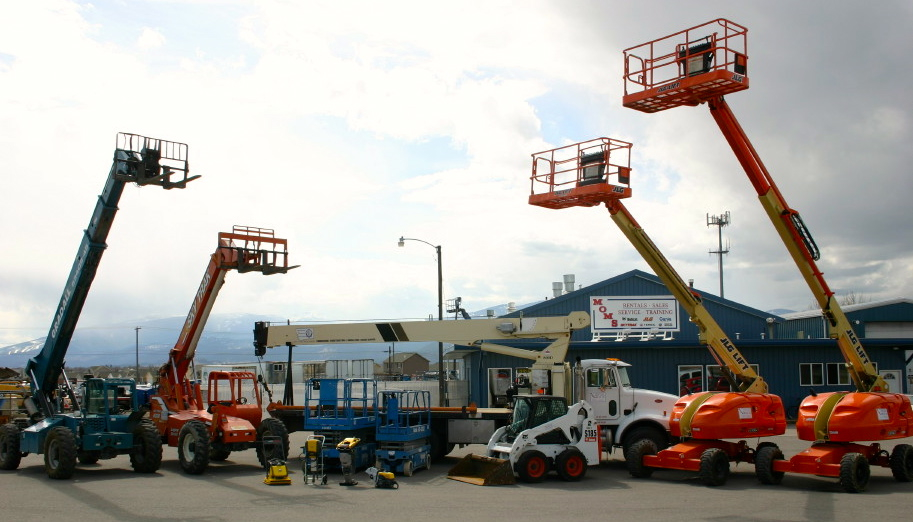Construction Equipment Rentals: Heavy Duty Equipment for Your Projects
Construction Equipment Rentals: Heavy Duty Equipment for Your Projects
Blog Article
Optimize Your Budget Plan by Comprehending the Costs Connected With Building Devices Rentals
Comprehending the complete range of prices linked with building tools rentals is crucial for maximizing your spending plan. What approaches can be employed to successfully handle these expenses and make certain a more efficient rental experience?
Review of Rental Expenses
When considering building and construction equipment services, understanding the associated expenses is paramount for effective budgeting and job preparation. Rental costs can differ significantly based on a number of variables, including equipment type, period of service, and location. The first rental cost typically reflects the equipment's market need and its associated functional capacities, influencing the total cost.
In addition to the base rental price, secondary costs may occur, such as transportation charges, gas surcharges, and upkeep costs. It is vital to represent these additional expenditures to precisely assess the total price of leasing tools. The rental period can affect prices; longer services might certify for affordable prices, while temporary services could sustain greater daily charges.

Malfunction of Rental Prices
A comprehensive understanding of rental rates is important for professionals and project managers intending to maximize their spending plans. Rental prices for building equipment generally consist of several parts, consisting of base prices, time-based fees, and use charges.
Base rates are the core charges connected with the leasing of the devices, usually figured out by the kind and dimension of the machinery. These rates can differ substantially, influenced by aspects such as devices need, schedule, and local market trends. Time-based costs, which might be daily, weekly, or monthly, offer to suit various project timelines and rental durations.
In addition, rental rates might include use fees, which are applicable when tools is used past a specified limit, making sure that the rental company can make up deterioration. Seasonal need changes can also impact rental rates, with peak building and construction seasons commonly regulating higher prices.
In addition, comprehending the rental company's plans concerning upkeep and insurance coverage can offer more understanding into the general cost framework. By evaluating these components, contractors can make enlightened decisions, ensuring the choice of rental equipment straightens with both job demands and spending plan restraints.
Additional Charges to Take Into Consideration
Comprehending the details of additional costs is important for contractors to manage their total rental costs properly. Beyond the conventional rental prices, various supplementary charges can dramatically affect the overall expense of devices rental. These charges often include shipment and pick-up fees, which can differ based upon range and logistics associated with transferring the equipment to and from the job site.
Moreover, some rental business may impose gas additional charges if the devices is returned with less gas than when rented out. It is additionally vital to understand possible cleansing charges, specifically for customized equipment that needs comprehensive maintenance after use.

Completely evaluating the rental agreement and making clear these added charges upfront can aid specialists ensure and prevent unforeseen costs that budgets remain undamaged throughout the project lifecycle.
Upkeep and Fixing Costs
Regular upkeep and repair expenses are typically neglected aspects that can dramatically affect the total expense of building and construction tools services. When leasing equipment, it is important to take into consideration not just the rental costs however also the potential costs related to keeping the equipment in optimum operating problem.
Numerous rental business consist of basic upkeep as component of the rental contract; nevertheless, extra unanticipated breakdowns or considerable fixings can bring about added costs. It's important to review the rental agreement very carefully to comprehend what upkeep solutions are covered and what duties drop on the occupant.
Additionally, equipment that is not well-kept can cause inadequacies on the work website, possibly creating hold-ups and raising project costs. To mitigate these risks, it is recommended to carry out regular evaluations and maintain open communication with the rental service provider concerning any issues that emerge throughout usage.
Insurance Coverage and Obligation Expenses
Insurance policy and responsibility prices are important elements that can substantially affect the total expenditure of building and construction tools rentals (mini excavator rental). These prices ensure that both the rental firm and the client are secured from prospective economic losses arising from crashes, damage, or theft during the rental period

In addition, clients need to understand any kind of deductibles or click to read exemptions in the insurance coverage, as these can impact prospective out-of-pocket expenses. Understanding the conditions of any insurance protection is vital to stay clear of unanticipated prices. Ultimately, budgeting for insurance and responsibility expenses can assist guarantee a smoother rental experience and protect against economic dangers associated with building and construction tasks.
Conclusion
In final thought, an extensive understanding of the expenses connected with construction equipment services is crucial for reliable spending plan administration. Inevitably, educated decision-making relating to devices leasings contributes to the overall success of construction endeavors.
Rental costs can differ dramatically based on numerous variables, consisting of equipment type, period of leasing, and location (rental company near me). The rental period can impact rates; longer rentals may certify for reduced rates, while temporary rentals may incur greater daily fees
By conducting comprehensive research study and engaging with reputable rental business, service providers can effectively navigate the intricacies of rental pricing, eventually optimizing their financial sources.
Past the typical rental rates, numerous supplemental costs can considerably affect the complete cost of devices service. Rental companies typically give liability insurance coverage that covers injuries to third events or damage to building, while equipment damage insurance coverage can cover the price of fixings or read here replacement if the rented devices is harmed.
Report this page